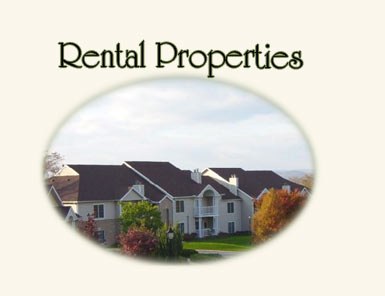
This post was written by Jeff O’Brien for Simply Residential Property Management Magazine.
Can you be held liable when a tenant or guest is injured on your property? More importantly, what steps can landlords take to minimize liability for these injuries.
Common Law Duty – General Rule; Exceptions
For a common law negligence claim, one must prove (1) the existence of a duty of care, (2) breach of that duty, (3) proximate causation, and (4) damages. White v. Many Rivers West Limited Partnership, 797 N.W.2d 739, 743 (Minn. Ct. App. 2011). When it comes to the liability of landlords for tenant injuries, however, Minnesota courts have long held that landlords generally owe no duty of care to their tenants and are not liable for damages caused by defective conditions on the leased premises. White, 797 N.W.2d at 744 (Minn. Ct. App. 2011), citing Oakland v. Stenlund, 420 N.W. 2d 248, 250 (Minn. Ct. App. 1988).
Several exceptions to the general rule exist. A duty of care may exist if the landlord: (1) has willingly undertaken to repair the premises and done so negligently; (2) retains control of certain areas of the premises; or (3) is aware of a hidden hazard on the premises by the tenant is not. White, 797 N.W.2d at 744, citing Gradjelick v. Hance, 646 N.W.2d 225, 231 (Minn. 2002).
Negligent Repair Exception
If a landlord assumes the duty to correct a defect on part of the property when not required by the lease to do so, “the landlord must bear the burden of failure to make a good job of it.” White, 797 N.W.2d at 744, quoting Canada by Landy v. McCarthy, 567 N.W.2d 496, 504 (Minn. 1997). The duty of reasonable care to make a good job of repairs, however, requires only that “the necessary repairs [be performed] in a reasonable way.” Id. The landlord’s duty is not to make improvements to the safety of the thing repaired exceeding the safety standards otherwise imposed by law.
Retention of Control Exception
A second exception to the general rule occurs if the landlord retains possession of an apartment’s common areas, like stairs, halls, elevators or yard space. White, 797 N.W.2d at 745, citing Rosmo v. Amherst Holding Co., 50 N.W.2d 698, 701 (1951). Note that a landlord performing routine maintenance on windows in a unit or addressing a tenant’s complaints related to the windows does not fall under this exception. White at 745.
Hidden Hazard Exception
If a property contains hidden dangers that the landlord knows about and the tenant does not, the landlord must warn tenants about that danger, but the landlord has no corresponding duty to warn a tenant’s guests. White, 797 N.W.2d at 745, citing Oakland, 420 N.W.2d at 251. And no warning is required even for the tenant when the tenant knows of the dangerous condition or the condition is so open and obvious that the tenant can be expected or have discovered it on her own. White, 797 N.W.2d at 745, citing Johnson v. O’Brien, 105 N.W.2d 244, 247 (1960).
Contractual Duty of Care – General Rule
A landlord may contractually create a duty to maintain the leased premises. White, 797 N.W.2d at 746, citing Dyrdal v. Golden Nuggets, Inc., 672 N.W.2d 578, 587 (Minn. Ct. App. 2004), affirmed, 689 N.W.2d 779 (Minn. 2004). When a lease contains no stipulation on the subject of maintenance, generally “there is no implied covenant on the part of the landlord…that the premises are or will prove to be suitable for the tenant’s use.” White, 797 N.W.2d at 746, quoting Krueger v. Farrant, 13 N.W. 158, 159 (1882). But if a landlord expressly agrees to maintain a part of the lessee’s premises, he then creates a duty to exercise reasonable care. White, 797 N.W.2d at 746, quoting Drager, 495 N.W.2d at 885. However, a landlord’s promise to repair parts of premises for safety purposes is not an express agreement to repair to a certain standard. White, 797 N.W.2d at 746, citing Normandin v. Freidson, 233 N.W. 14, 15 (1930).
Jeffrey C. O’Brien is an attorney with the Minneapolis based law firm of Lommen Abdo, P.A. and a MSBA Board Certified Real Property Specialist. He can be reached at (612) 336-9317 or via email at jobrien@lommen.com.




 Investing your money is a difficult task. Choosing where your money could thrive is a decision not to be taken lightly, and much of how you decide to invest should depend on the kind of person you are.
Investing your money is a difficult task. Choosing where your money could thrive is a decision not to be taken lightly, and much of how you decide to invest should depend on the kind of person you are. Regular maintenance and prevention go a long way to make sure little things don’t end up costing far more than they should. Take some time at the beginning of the year to go through the property records. Have a look at the major pieces in the house; the roof, water heater, heating/air conditioning units, etc. Perhaps the roof is getting on in years? Budgeting and planning for a new roof now, prior to leaks and damage, will save you considerable headache and money than waiting for a problem and having to not only repair but clean up the damage as well!
Regular maintenance and prevention go a long way to make sure little things don’t end up costing far more than they should. Take some time at the beginning of the year to go through the property records. Have a look at the major pieces in the house; the roof, water heater, heating/air conditioning units, etc. Perhaps the roof is getting on in years? Budgeting and planning for a new roof now, prior to leaks and damage, will save you considerable headache and money than waiting for a problem and having to not only repair but clean up the damage as well! Consistent updates, make sure that the rental is attractive to potential tenants, as well as making sure that the property isn’t losing you money. Updates to the efficiency of a property make sure you aren’t losing money. Have a look at the heating/cooling costs of a property. If they are eating into your profit, it’s time to update! First have a look at the insulation and windows of a building. If the windows are old and drafty or the insulation is insufficient, even a brand new heating or cooling system won’t fix the problem. If the windows and insulation are adequate, have a look to the units themselves. Purchasing a high-quality, efficient system will save you money on monthly expenses down the road.
Consistent updates, make sure that the rental is attractive to potential tenants, as well as making sure that the property isn’t losing you money. Updates to the efficiency of a property make sure you aren’t losing money. Have a look at the heating/cooling costs of a property. If they are eating into your profit, it’s time to update! First have a look at the insulation and windows of a building. If the windows are old and drafty or the insulation is insufficient, even a brand new heating or cooling system won’t fix the problem. If the windows and insulation are adequate, have a look to the units themselves. Purchasing a high-quality, efficient system will save you money on monthly expenses down the road. With the free price quote you receive from Simply Residential Property Management you are receiving a myriad of important services. These services that property management agencies perform allow better relationships to form between property owners and tenants. They help foster this relationship by drawing up leases and being present at the lease signings of new tenants. These agencies also collect monthly rent from tenants and follow up with clients that have not paid rent through late notices and eviction proceedings.
With the free price quote you receive from Simply Residential Property Management you are receiving a myriad of important services. These services that property management agencies perform allow better relationships to form between property owners and tenants. They help foster this relationship by drawing up leases and being present at the lease signings of new tenants. These agencies also collect monthly rent from tenants and follow up with clients that have not paid rent through late notices and eviction proceedings.